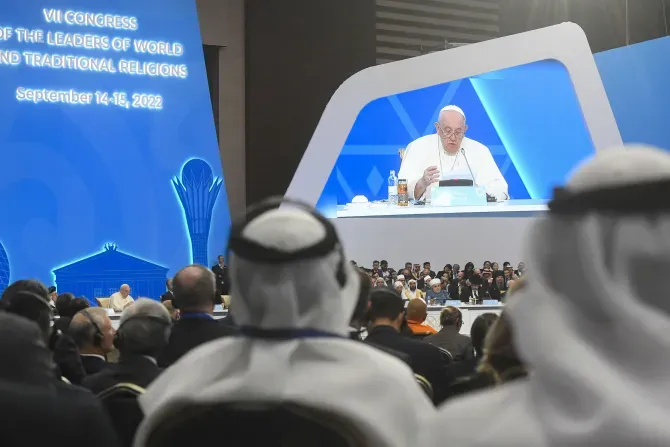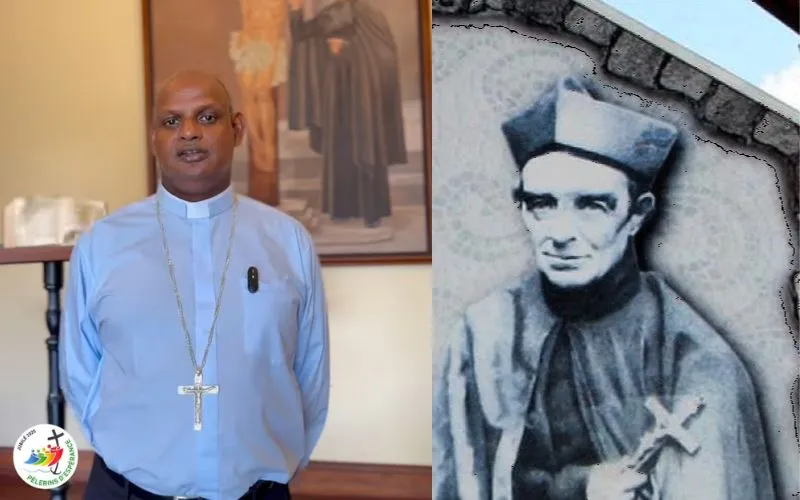Vatican, 13 September, 2022 / 11:49 am (ACI Africa).
It is the task of religions to remind society of the sacredness of all human life, Pope Francis told leaders of the world’s religions in Kazakhstan on Wednesday.
The pope spoke Sept. 14 at the opening and plenary session of the Seventh Congress of Leaders of World and Traditional Religions at the Palace of Independence in Nur-Sultan.
“Today we find it hard to accept the human being,” Francis told attendees of the interreligious summit. “Each day children, born and unborn, migrants and elderly persons, are cast aside. Many of our brothers and sisters die sacrificed on the altar of profit, amid clouds of the sacrilegious incense of indifference. Yet every human being is sacred.”
“Homo sacra res homini,” he said, quoting Roman philosopher Seneca. “It is above all our task, the task of the religions, to remind the world of this.”
The opening session of the interreligious summit began with a few minutes of private prayer before Kazakhstan President Kassym-Jomart Tokayev gave his opening remarks, followed by the speech of Pope Francis and three other religious leaders: Grand Imam Ahmed El Tayeb of al-Azhar, Metropolitan Anthony of Volokolamsk from the Moscow Patriarchate, and Sephardi Chief Rabbi of Israel Yitzhak Yosef.








